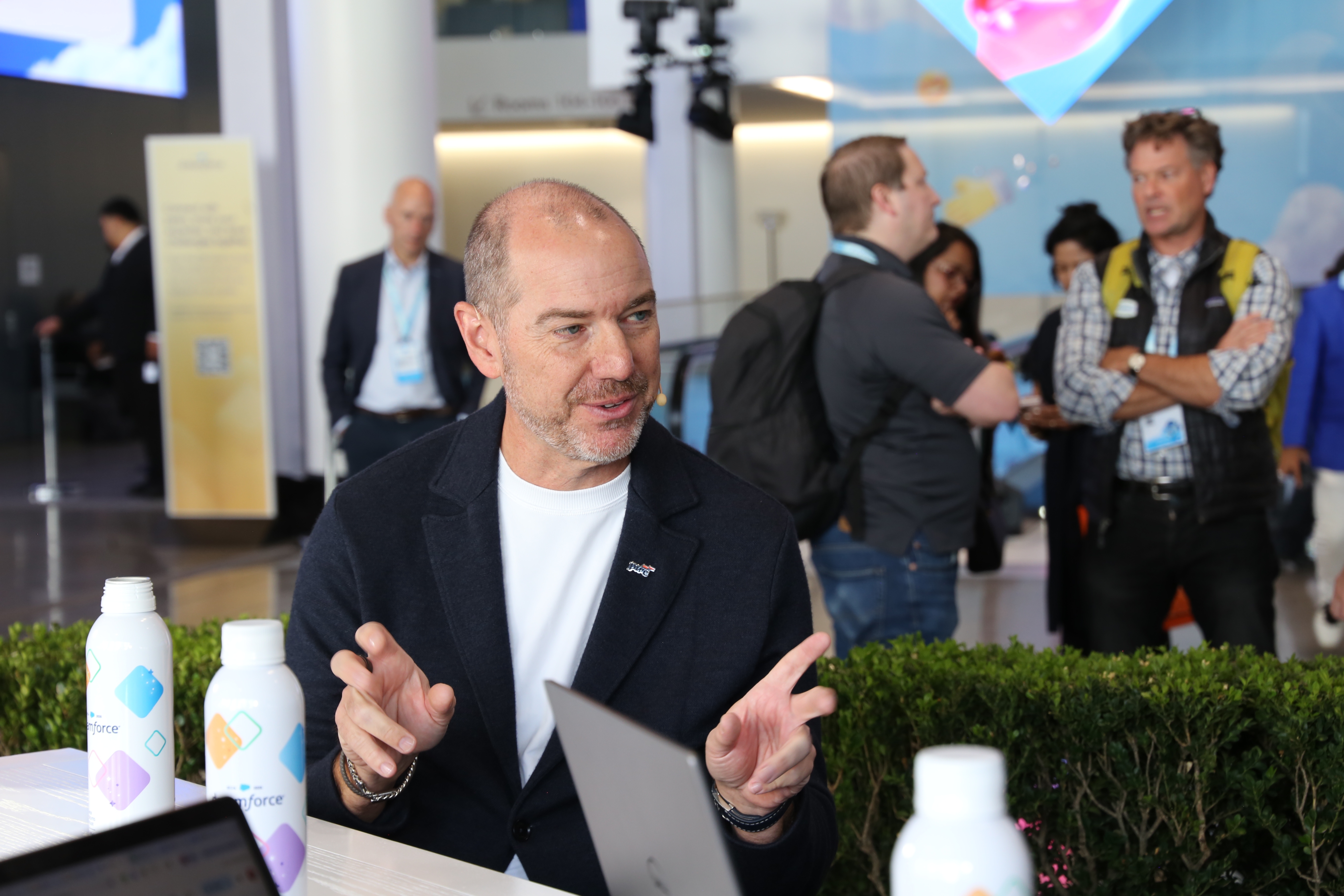 AI
AI
 AI
AI
 AI
AI
Call center burnout isn’t just a staffing issue. It’s a warning light that today’s change management tactics aren’t keeping up. Across industries, companies face mounting pressure to rewire how customer service actually works, even as costs and expectations keep climbing.
PwC PricewaterhouseCoopers LLP is leaning into pragmatic change management to turn this dynamic from a crisis into a growth engine, focusing on readiness and outcomes over shortcuts. For organizations facing persistent operational and customer experience headwinds, real gains come from process, not platitudes, according to Reggie Walker (pictured), global Salesforce alliance leader at PwC.

PwC’s Reggie Walker talks with theCUBE about the company’s partnership with Salesforce.
“The opportunity we see here is about 70% to 80% cost reduction by the way of going to this approach,” he told theCUBE. “That’s going to be from standardizing processes, and it’s going to be also to standardizing technologies. But we’re also seeing 10% to 15% growth in [customer satisfaction] scores, and we really see that as the opportunity, because if you look ahead, customer loyalty, being able to use it as a growth engine versus just troubleshooting problems, that’s where we see the opportunity.”
Walker joined theCUBE’s Dave Vellante and Gemma Allen at Dreamforce, during an exclusive broadcast on theCUBE, SiliconANGLE Media’s livestreaming studio. They discussed PwC’s partnership with Salesforce Inc., the evolution of agentic contact centers, cost reduction, customer satisfaction gains and the practical steps organizations need to scale technology successfully. (* Disclosure below.)
Effective change management means adapting not just to new technology, but to the deeper systems and behaviors that shape how organizations operate. For PwC, every client engagement starts with mapping industry-specific challenges and building scalable solutions, according to Walker.
“What we’re known for more than anything else, our foundation has always been tremendous industry expertise and a lot of knowledge about how industries work and the underlying business processes that work with industries,” Walker said. We start first with that. We have real intimate industry knowledge because it matters. You can talk all you want in generalities to someone, but when you want to take it down to banking or you want to take it down to healthcare or you want to take it down to retail, they want to know what it matters for them.”
The partnership between PwC and Salesforce isn’t just about rolling out new software for clients’ contact centers; it’s about real change management that empowers people, whether they’re on the front lines or behind the scenes. PwC believes organizations see the most impact when they help their teams learn new workflows and adapt to evolving tools, according to Walker.
PwC’s partnership with Salesforce goes beyond deploying new contact center tools. It’s about people — empowering teams to learn, adapt and succeed with evolving workflows, Walker explained.
“It’s funny; it’s not the technology,” Walker said. “Technology works. It is about the people, and it’s about how we’re changing the way people are going to be working, and about that change management and that journey that needs to go on, because we can deploy the best technology in the world. But the reality is that if people don’t know how to use it or they don’t know how to interact with it. Teaching the humans how to interact with that agentic workforce and how it can augment what they do is going to be so important to getting the results.”
PwC’s own internal rollout of Salesforce demonstrated the value of this mindset. When launch readiness wasn’t where it needed to be, the team made the call to pause and reinvest.
“We were getting close to a go live date,” he said. “We decided to pause because we said, ‘We’re not there yet. We need to do some more to get our people where they need to be in order to take advantage of this.’ We delayed it for another month, and we spent more money, and we deployed more training and got them to where they needed to be.”
Here’s the complete video interview, part of SiliconANGLE’s and theCUBE’s coverage of Dreamforce:
(* Disclosure: TheCUBE is a paid media partner for Dreamforce. Neither Salesforce Inc., the sponsor of theCUBE’s event coverage, nor other sponsors have editorial control over content on theCUBE or SiliconANGLE.)
Support our mission to keep content open and free by engaging with theCUBE community. Join theCUBE’s Alumni Trust Network, where technology leaders connect, share intelligence and create opportunities.
Founded by tech visionaries John Furrier and Dave Vellante, SiliconANGLE Media has built a dynamic ecosystem of industry-leading digital media brands that reach 15+ million elite tech professionals. Our new proprietary theCUBE AI Video Cloud is breaking ground in audience interaction, leveraging theCUBEai.com neural network to help technology companies make data-driven decisions and stay at the forefront of industry conversations.